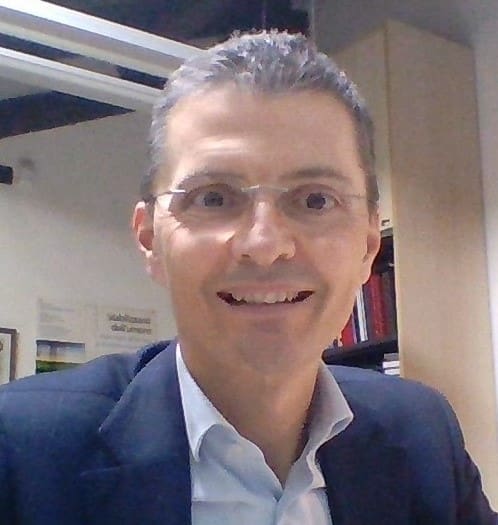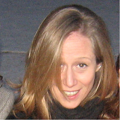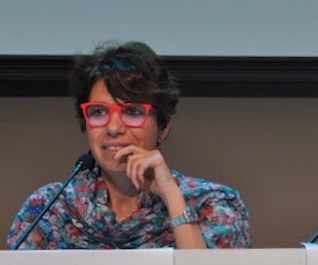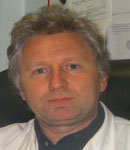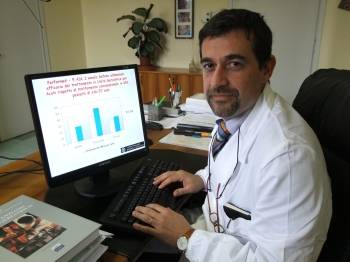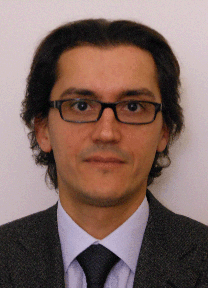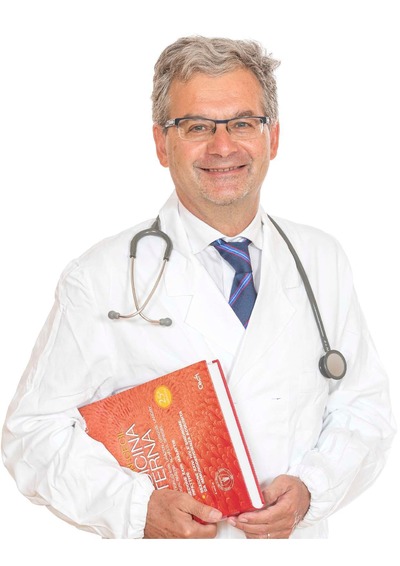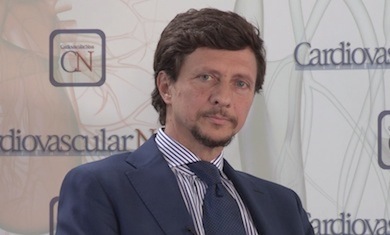Studiare
In questa sezione è possibile reperire le informazioni riguardanti l'organizzazione pratica del corso, lo svolgimento delle attività didattiche, le opportunità formative e i contatti utili durante tutto il percorso di studi, fino al conseguimento del titolo finale.
Calendario accademico
Il calendario accademico riporta le scadenze, gli adempimenti e i periodi rilevanti per la componente studentesca, personale docente e personale dell'Università. Sono inoltre indicate le festività e le chiusure ufficiali dell'Ateneo.
L’anno accademico inizia il 1° ottobre e termina il 30 settembre dell'anno successivo.
Calendario didattico
Il calendario didattico indica i periodi di svolgimento delle attività formative, di sessioni d'esami, di laurea e di chiusura per le festività.
| Periodo | Dal | Al |
|---|---|---|
| INF VR - 1° anno 1° sem | 3-ott-2017 | 21-dic-2017 |
| INF VR - 2° anno 1° sem | 3-ott-2017 | 21-dic-2017 |
| INF VR - 3° anno 1° sem | 18-ott-2017 | 21-dic-2017 |
| INF VR - 3° anno 2° sem | 1-feb-2018 | 28-mar-2018 |
| INF VR - 1° anno 2° sem | 1-feb-2018 | 6-apr-2018 |
| INF VR - 2° anno 2° sem | 16-apr-2018 | 15-giu-2018 |
| Sessione | Dal | Al |
|---|---|---|
| INF VR- sessione invernale 2 anno | 8-gen-2018 | 29-gen-2018 |
| INF VR- sessione invernale 1-3 anno | 8-gen-2018 | 31-gen-2018 |
| INF VR- sessione estiva 1 anno (1^parte) | 9-apr-2018 | 20-apr-2018 |
| INF VR- sessione estiva 2 anno | 25-giu-2018 | 18-lug-2018 |
| INF VR- sessione estiva 3 anno | 9-lug-2018 | 31-lug-2018 |
| VR- sessione estiva 1 anno (2^parte) | 18-lug-2018 | 31-lug-2018 |
| VR- sessione autunnale 1-2-3 anno | 3-set-2018 | 28-set-2018 |
| Sessione | Dal | Al |
|---|---|---|
| 1^ SESSIONE | 1-ott-2018 | 30-nov-2018 |
| 2^ SESSIONE | 1-mar-2019 | 30-apr-2019 |
| Periodo | Dal | Al |
|---|---|---|
| Festa di Ognissanti | 1-nov-2017 | 1-nov-2017 |
| Festa Immacolata Concezione | 8-dic-2017 | 8-dic-2017 |
| Vacanze natalizie | 22-dic-2017 | 7-gen-2018 |
| Vacanze di Pasqua | 30-mar-2018 | 3-apr-2018 |
| Festa della Liberazione | 25-apr-2018 | 25-apr-2018 |
| Festa del Santo Patrono - S. Zeno | 21-mag-2018 | 21-mag-2018 |
| Festa della Repubblica | 2-giu-2018 | 2-giu-2018 |
| Descrizione | Periodo | Dal | Al |
|---|---|---|---|
| INF VR 2° anno 1^ esp | INF VR 2° anno 1^ esp | 30-gen-2018 | 28-mar-2018 |
| INF VR 3° anno 1^ esp | INF VR 3° anno 1^ esp | 4-apr-2018 | 18-mag-2018 |
| INF VR 1° anno 1^ esp | INF VR 1° anno 1^ esp | 23-apr-2018 | 1-feb-2018 |
| INF VR 3° anno 2^ esp | INF VR 3° anno 2^ esp | 28-mag-2018 | 6-lug-2018 |
| INF VR 1° anno 2^ esp | INF VR 1° anno 2^ esp | 11-giu-2018 | 17-lug-2018 |
| INF VR 2° anno 2^ esp | INF VR 2° anno 2^ esp | 3-set-2018 | 12-ott-2018 |
| INF VR 3° anno 3^ esp | INF VR 3° anno 3^ esp | 10-set-2018 | 19-ott-2018 |
Calendario esami
Gli appelli d'esame sono gestiti dalla Unità Operativa Segreteria Corsi di Studio Medicina.
Per consultazione e iscrizione agli appelli d'esame visita il sistema ESSE3.
Per problemi inerenti allo smarrimento della password di accesso ai servizi on-line si prega di rivolgersi al supporto informatico della Scuola o al servizio recupero credenziali
Per dubbi o domande leggi le risposte alle domande più frequenti F.A.Q. Iscrizione Esami
Docenti
 elisabetta.allegrini@aovr.veneto.it
elisabetta.allegrini@aovr.veneto.it
 michele.bertani@univr.it
michele.bertani@univr.it
 assunta.biasi@univr.it
assunta.biasi@univr.it
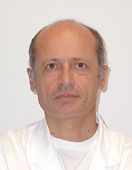
Bisoffi Zeno
 zeno.bisoffi@sacrocuore.it
zeno.bisoffi@sacrocuore.it
 +390456013326
+390456013326
 luisa.bissoli@mail.azosp.vr.it
luisa.bissoli@mail.azosp.vr.it
 federica.bonato@aor.veneto.it
federica.bonato@aor.veneto.it
Cunico Laura
 laura.cunico@univr.it
laura.cunico@univr.it
 raffaele.cutolo@univr.it
raffaele.cutolo@univr.it
 0444752922
0444752922
 francesca.defanti@univr.it
francesca.defanti@univr.it
 stefano.detogni@univr.it
stefano.detogni@univr.it
Leonardelli Paola
 laura.messina@univr.it
laura.messina@univr.it
 045 8122124
045 8122124
 zenogabriele.poli@univr.it
zenogabriele.poli@univr.it
 er.vedovi@virgilio.it
er.vedovi@virgilio.it
 elisabetta.veronese@aovr.veneto.it
elisabetta.veronese@aovr.veneto.it
 lzivelonghi@aulss9.veneto.it
lzivelonghi@aulss9.veneto.it
Piano Didattico
Il piano didattico è l'elenco degli insegnamenti e delle altre attività formative che devono essere sostenute nel corso della propria carriera universitaria.
Selezionare il piano didattico in base all'anno accademico di iscrizione.
1° Anno
| Insegnamenti | Crediti | TAF | SSD |
|---|
Fisiopatologia applicata all'infermieristica
Fondamenti biomolecolari della vita
Fondamenti morfologici e funzionali della vita
Infermieristica generale e metodologia applicata
Promozione della salute e della sicurezza
English for Nursing
Tirocinio professionalizzante (primo anno)
2° Anno Attivato nell'A.A. 2018/2019
| Insegnamenti | Crediti | TAF | SSD |
|---|
Applicazione dei processi diagnostici e terapeutici
Infermieristica clinica della cronicita'
Infermieristica clinica in area chirurgica
Infermieristica clinica in area medica
Relazione di aiuto nei processi assistenziali
Tirocinio professionalizzante (secondo anno)
3° Anno Attivato nell'A.A. 2019/2020
| Insegnamenti | Crediti | TAF | SSD |
|---|
Infermieristica clinica in area materno-infantile
Infermieristica clinica nella criticita' vitale
Metodologia dell'infermieristica basata sulle evidenze
Metodologie di intervento nella comunita'
Organizzazione sanitaria e dei processi assistenziali
Principi legali, bioetici e deontologici dell'esercizio professionale
| Insegnamenti | Crediti | TAF | SSD |
|---|
Fisiopatologia applicata all'infermieristica
Fondamenti biomolecolari della vita
Fondamenti morfologici e funzionali della vita
Infermieristica generale e metodologia applicata
Promozione della salute e della sicurezza
English for Nursing
Tirocinio professionalizzante (primo anno)
| Insegnamenti | Crediti | TAF | SSD |
|---|
Applicazione dei processi diagnostici e terapeutici
Infermieristica clinica della cronicita'
Infermieristica clinica in area chirurgica
Infermieristica clinica in area medica
Relazione di aiuto nei processi assistenziali
Tirocinio professionalizzante (secondo anno)
| Insegnamenti | Crediti | TAF | SSD |
|---|
Infermieristica clinica in area materno-infantile
Infermieristica clinica nella criticita' vitale
Metodologia dell'infermieristica basata sulle evidenze
Metodologie di intervento nella comunita'
Organizzazione sanitaria e dei processi assistenziali
Principi legali, bioetici e deontologici dell'esercizio professionale
Legenda | Tipo Attività Formativa (TAF)
TAF (Tipologia Attività Formativa) Tutti gli insegnamenti e le attività sono classificate in diversi tipi di attività formativa, indicati da una lettera.
Prospettive
Avvisi degli insegnamenti e del corso di studio
Per la comunità studentesca
Se sei già iscritta/o a un corso di studio, puoi consultare tutti gli avvisi relativi al tuo corso di studi nella tua area riservata MyUnivr.
In questo portale potrai visualizzare informazioni, risorse e servizi utili che riguardano la tua carriera universitaria (libretto online, gestione della carriera Esse3, corsi e-learning, email istituzionale, modulistica di segreteria, procedure amministrative, ecc.).
Entra in MyUnivr con le tue credenziali GIA: solo così potrai ricevere notifica di tutti gli avvisi dei tuoi docenti e della tua segreteria via mail e a breve anche tramite l'app Univr.
Gestione carriere
Guida ai programmi degli insegnamenti
Guida ai programmi degli insegnamenti
Documenti
| Titolo | Info File |
|---|---|
|
|
pdf, it, 1594 KB, 12/12/22 |
|
|
pdf, it, 1310 KB, 02/09/21 |
Orario lezioni
Si pubblicano gli orari delle lezioni relativi al 2° semestre A.A. 2023/2024
Gli orari potrebbero subire alcune modifiche, pertanto si consiglia di consultare l'orario delle lezioni giornalmente nell‘area riservata MyUnivr e/o ORARIO LEZIONI.
Documenti
| Titolo | Info File |
|---|---|
|
|
pdf, it, 126 KB, 06/03/24 |
|
|
pdf, it, 128 KB, 09/02/24 |
|
|
pdf, it, 120 KB, 18/03/24 |
|
|
pdf, it, 122 KB, 18/03/24 |
|
|
pdf, it, 125 KB, 20/03/24 |
|
|
octet-stream, it, 32 KB, 04/04/24 |
Prova Finale
Per essere ammessi alla prova finale occorre avere conseguito tutti i crediti nelle attività formative previste dal piano degli studi, compresi quelli relativi all’attività di tirocinio. Alla preparazione della tesi sono assegnati 7 CFU.
La prova è organizzata, con decreto del Ministro dell'Istruzione, dell'Università e della Ricerca di concerto con il Ministro del Lavoro, della Salute e delle Politiche Sociali, in due sessioni definite a livello nazionale.
La prova finale, con valore di esame di Stato abilitante, si compone di:
- una prova pratica che consiste in un elaborato scritto strutturato, semi-strutturata o con domande aperte su casi/situazioni esemplificative della pratica professionale. La prova deve comprendere una selezione di quesiti di problem solving e di quesiti sulla presa di decisione nelle aree di competenza infermieristica.
- La redazione di un elaborato di tesi e sua dissertazione.
Le due diverse componenti della prova finale devono concorrere in egual misura alla determinazione del voto finale. In caso di valutazione insufficiente della prova pratica l’esame si interrompe e si ritiene non superato. La prova finale viene sospesa e va ripetuta interamente in una seduta successiva.
Il punteggio finale di Laurea è espresso in centodecimi con eventuale lode. Esso viene formato sommando la media ponderata dei voti conseguiti negli esami di profitto, rapportata a 110, con il punteggio ottenuto nella prova pratica (6 punti) e nella discussione della Tesi (parimenti fino ad un massimo di 6 punti)
La Commissione di Laurea potrà attribuire ulteriori punti anche in base a: presenza di eventuali lodi ottenute negli esami sostenuti; partecipazione progetto Erasmus 2 punti aggiuntivi; laurea entro i termini della durata normale del corso 1 punto
Lo studente avrà la supervisione di un docente del Corso di Laurea, detto Relatore, ed eventuali correlatori anche esterni al Corso di Laurea.
Scopo della tesi è quello di impegnare lo studente in un lavoro di formalizzazione, progettazione e di ricerca, che contribuisca sostanzialmente al completamento della sua formazione professionale e scientifica. Il contenuto della tesi deve essere inerente a tematiche o discipline strettamente correlate al profilo professionale.
La valutazione della tesi sarà basata sui seguenti criteri: livello di approfondimento del lavoro svolto, contributo critico del laureando, accuratezza della metodologia adottata per lo sviluppo della tematica.
È prevista la possibilità per lo studente di redigere l'elaborato in lingua inglese.
La scadenza per la presentazione della domanda di laurea e relativa documentazione, verrà indicata negli avvisi dello specifico Corso di Laurea
Documenti
| Titolo | Info File |
|---|---|
|
|
pdf, it, 242 KB, 19/01/24 |
|
|
pdf, it, 80 KB, 06/04/24 |
|
|
pdf, it, 43 KB, 06/04/24 |
|
|
pdf, it, 44 KB, 09/04/24 |
|
|
pdf, it, 148 KB, 06/04/24 |
|
|
pdf, it, 108 KB, 06/04/24 |
|
|
pdf, it, 115 KB, 06/04/24 |
|
|
pdf, it, 1487 KB, 18/02/22 |
|
|
pdf, it, 437 KB, 22/03/24 |
|
|
pdf, it, 957 KB, 22/03/24 |
|
|
pdf, it, 424 KB, 19/01/24 |
Elenco delle proposte di tesi e stage
| Proposte di tesi | Area di ricerca |
|---|---|
| Progetto WITHSTAND- Supportare la resilienza negli eventi avversi in sanità | The Human Mind and Its Complexity: Cognitive science, psychology, linguistics, philosophy of mind - Clinical and health psychology |
Tirocinio professionalizzante
Finalità del Tirocinio
Le attività di tirocinio sono finalizzate a far acquisire allo studente competenze specifiche previste dal profilo professionale. Per conseguire tali finalità formative, si possono attivare convenzioni con strutture, che rispondano ai requisiti di idoneità per attività, dotazione di servizi e strutture.
I 60 crediti minimi riservati al tirocinio sono da intendersi come impegno complessivo necessario allo studente per raggiungere le competenze professionali “core” previste dal rispettivo profilo professionale.
Il tirocinio professionale comprende:
- sessioni tutoriali che preparano lo studente all’esperienza;
- esercitazioni e simulazioni in cui si sviluppano le abilità tecniche, relazionali e metodologiche in situazione protetta prima o durante la sperimentazione nei contesti reali;
- esperienze dirette sul campo con supervisione;
- sessioni tutoriali e feedback costanti;
- compiti didattici, elaborati e approfondimenti scritti specifici e mandati di studio guidato.
La valutazione delle competenze acquisite in tirocinio.
Le esperienze di tirocinio devono essere progettate, valutate e documentate nel percorso dello studente. Durante ogni esperienza di tirocinio lo studente riceve valutazioni formative sui suoi progressi sia attraverso colloqui e schede di valutazione.
Al termine di ciascun anno di corso viene effettuata una valutazione sommativa (certificativa) per accertare i livelli raggiunti dallo studente nello sviluppo delle competenze professionali attese. La valutazione viene effettuata da una Commissione presieduta dal Coordinatore della Didattica Professionale (CDP), e composta da almeno un docente e da un Tutor professionale. Tale valutazione è la sintesi delle valutazioni formative, via via, documentate durante l’anno di corso, il profitto raggiunto negli elaborati scritti e le performance delle abilità tecniche assistenziali e relazionali dimostrate all’esame di tirocinio che può essere realizzato con esami simulati, colloqui, prove scritte applicative.
L’esame annuale di tirocinio prevede un unico appello per anno accademico, salvo particolari situazioni per le quali la commissione didattica potrà concedere un appello straordinario.
La valutazione sommativa del tirocinio sarà espressa e registrata nella carriera in trentesimi in base al livello di raggiungimento degli obiettivi. Le modalità di registrazione del voto di profitto sono:
- “assente” pre-iscritto che non ha frequentato alcuna esperienza di tirocinio;
- “ritirato” sospensione durante il tirocinio per problemi di salute, gravidanza o per motivazioni personali;
- “insufficiente” non raggiungimento del livello atteso negli obiettivi formativi (anche se lo studente ha sospeso la frequenza al tirocinio o non sostenuto l’esame finale).
Prerequisiti di accesso al tirocinio.
Il Coordinatore della Didattica Professionale (CDP), ammette alla frequenza dell’esperienza di tirocinio previsto per l’anno di corso, gli studenti che hanno frequentato regolarmente:
- le attività teoriche, in particolare gli insegnamenti delle discipline professionali dell’anno in corso e dell’anno precedente
- laboratori professionali ritenuti propedeutici al tirocinio
Ulteriori dettagli sono disciplinati dal Regolamento del corso di studio
Per maggiori informazioni consultare la pagina del servizio
Documenti
| Titolo | Info File |
|---|---|
|
|
pdf, it, 343 KB, 16/11/23 |
Attività Seminariali/a scelta dello studente
Attività Seminariali/a scelta dello studente
Documenti
| Titolo | Info File |
|---|---|
|
|
pdf, it, 121 KB, 12/10/23 |
|
|
pdf, it, 344 KB, 12/10/23 |
|
|
octet-stream, it, 39 KB, 07/12/22 |
|
|
pdf, it, 703 KB, 10/11/23 |
Guida alle attività formative
Guida alle attività formative
Documenti
| Titolo | Info File |
|---|---|
|
|
pdf, it, 1396 KB, 28/11/23 |
|
|
pdf, it, 1269 KB, 31/10/23 |
|
|
pdf, it, 554 KB, 02/11/23 |
Linee guida per riconoscimento cfu
Lo studente che intende chiedere il riconoscimento di moduli o insegnamenti pregressi dovrà presentare domanda, entro il 30 novembre dell’anno accademico in corso, seguendo le indicazioni indicate al link seguente: https://www.univr.it/it/i-nostri-servizi/segreterie-studenti/gestione-carriere-studenti-medicina-e-chirurgia/riconoscimento-crediti-acquisiti-da-una-carriera-pregressa-medicina
Documenti
| Titolo | Info File |
|---|---|
|
|
pdf, it, 295 KB, 09/11/21 |
Area riservata studenti
Attività didattiche regime part-time
Modalità di richiesta
La domanda di iscrizione part-time può essere presentata all'inizio di ogni anno accademico e comunque entro il 30 novembre di ogni anno. Entro lo stesso termine, se necessario, lo studente potrà richiedere di tornare al regime full-time. Al link seguente la pagina del servizio https://www.univr.it/it/i-nostri-servizi/segreterie-studenti/flessibilita-nella-frequenza-dei-corsi/possibilita-di-iscrizione-part-time-e-ripristino-full-time
Una volta inviata la domanda, lo studente concorda in via preventiva con il Coordinatore della didattica professionale (CDP), il piano di studi che intende perseguire nel periodo di part-time compilando il modulo in allegato
Documenti
| Titolo | Info File |
|---|---|
|
|
octet-stream, it, 1309 KB, 21/10/22 |
Appelli d'esame
Documenti
| Titolo | Info File |
|---|---|
|
|
pdf, it, 124 KB, 17/04/24 |



